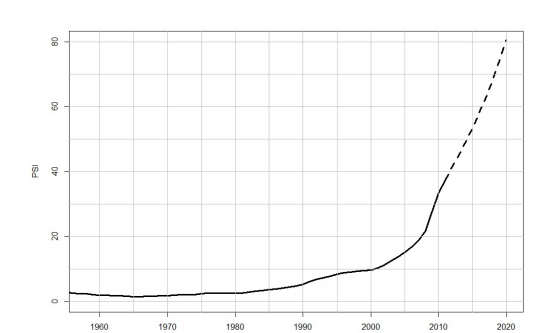Date: November 15, 2019
Author: Paul Cockshott
The issue of abstract and concrete labour is relatively simple. The two concepts are dealt with in a few very clear paragraphs at the beginning of Capital. But unfortunately it has, over the last couple of decades, been mystified by some Marxists. Misleading claims have been put about to the effect that :
- Abstract labour only exists under capitalism
- In socialist economies there is only concrete labour
- That there is no division of labour in non capitalist economies
Marx uses the concept on the second page of Capital where he writes:
If then we leave out of consideration the use value of commodities, they have only one common property left, that of being products of labour. But even the product of labour itself has undergone a change in our hands. If we make abstraction from its use value, we make abstraction at the same time from the material elements and shapes that make the product a use value; we see in it no longer a table, a house, yarn, or any other useful thing. Its existence as a material thing is put out of sight. Neither can it any longer be regarded as the product of the labour of the joiner, the mason, the spinner, or of any other definite kind of productive labour. Along with the useful qualities of the products themselves, we put out of sight both the useful character of the various kinds of labour embodied in them, and the concrete forms of that labour; there is nothing left but what is common to them all; all are reduced to one and the same sort of labour, human labour in the abstract. (Capital 1 Chap 1, page 28 )
So he is saying that each type of commodity has its own special physical qualities, and that these qualities are given to it by the special actions of the different types of labour : spinning, joinery, masonry. But if we consider commodities in general, bearing in mind that they exchange with one another, it can not be the specific character of labour the labour that made them that is important. It is the fact that they are all made by human labour. He says human labour in the abstract to emphasise that it is people doing it, whatever these people were doing.
It is a unique ability of our species, shared by no other species currently alive on this planet, to be able to apply ourselves readily to a vast variety of tasks. The combination of hands with large brains gives us this adaptability. It was only human labour that Marx considered as important in commodities.
At the time Marx was writing, we were not the only species working. There was a lot of horse labour going on in the English economy. In terms of physical effort probably more was done by horses than by people. I have seen figures for the horse population of late Victorian England as being 3.3 million, the human population was 21 million. A human male is hard put to sustain 75 watts of output, women and children considerably less. A horse power is 735 watts, so we can estimate that horses were delivering around twice as much work as people in Marx’s England.
But this work by our equine sisters was all traction. Horses were not spinning, engaging in cabinet making or bricklaying. There was no horse labour in the abstract; all they did was pull or carry riders.
The important thing to understand about commodities is that they were all produced by people working, irrespective of what kind of work people were doing. And because we are not concerned with exactly what they were doing, we can measure labour in units of time:
A use value, or useful article, therefore, has value only because human labour in the abstract has been embodied or materialised in it. How, then, is the magnitude of this value to be measured? Plainly, by the quantity of the value-creating substance, the labour, contained in the article. The quantity of labour, however, is measured by its duration, and labour time in its turn finds its standard in weeks, days, and hours. (Capital 1 Chap 1, page 29 )
Clearly if we are measuring labour in units of time, we are ignoring what the person was doing, and only taking into account that they were working at something.
The argument in Capital is in the context of commodities whose value, he says, comes from the division of labour. If we think about the division of labour, it is obviously human labour in general that is being divided between specific trades or professions. But the claim of some Marxists that abstract labour and the division of labour are something specific to capitalism does not follow. Just because Marx is writing about the division of labour under capitalism here, does not imply that capitalism is necessary for a division of labour. Indeed he explicitly makes this point:
To all the different varieties of values in use there correspond as many different kinds of useful labour, classified according to the order, genus, species, and variety to which they belong in the social division of labour. This division of labour is a necessary condition for the production of commodities, but it does not follow, conversely, that the production of commodities is a necessary condition for the division of labour. In the primitive Indian community there is social division of labour, without production of commodities. Or, to take an example nearer home, in every factory the labour is divided according to a system, but this division is not brought about by the operatives mutually exchanging their individual products. Only such products can become commodities with regard to each other, as result from different kinds of labour, each kind being carried on independently and for the account of private individuals. (Capital 1 Chap 1, page 30 )
So the argument goes that the division of human labour between different activities gives rise to the exchange value of commodities, but this only occurs if the division of labour occurs in a society of private individuals producing independently. In other social organisations, there can be a division of labour without commodities.
So there is every reason to suppose that a division of labour and therefore human work in the abstract will also exist in communist societies – even if there was no commodity production in them. We may hope that communist societies will tend to free people from a narrow subordination to this division of labour, so that people may vary their tasks either during the week or from year to year. This is what Marx was getting at when, many years earlier, he wrote
For as soon as the distribution of labour comes into being, each man has a particular, exclusive sphere of activity, which is forced upon him and from which he cannot escape. He is a hunter, a fisherman, a herdsman, or a critical critic, and must remain so if he does not want to lose his means of livelihood; while in communist society, where nobody has one exclusive sphere of activity but each can become accomplished in any branch he wishes, society regulates the general production and thus makes it possible for me to do one thing today and another tomorrow, to hunt in the morning, fish in the afternoon, rear cattle in the evening, criticise after dinner, just as I have a mind, without ever becoming hunter, fisherman, herdsman or critic.(German Ideology, Ch 1)
The fact that one person may do different concrete tasks at different times abolishes neither the division of labour nor abstract labour as Marx points out in Capital :
There are, however, states of society in which one and the same man does tailoring and weaving alternately, in which case these two forms of labour are mere modifications of the labour of the same individual, and not special and fixed functions of different persons, just as the coat which our tailor makes one day, and the trousers which he makes another day, imply only a variation in the labour of one and the same individual. Moreover, we see at a glance that, in our capitalist society, a given portion of human labour is, in accordance with the varying demand, at one time supplied in the form of tailoring, at another in the form of weaving. This change may possibly not take place without friction, but take place it must.(Capital 1, page 31)
I am not quite sure where this prejudice about the abstract labour only existing under capitalism, and ceasing to exist in a future economy comes from. It clearly does not come from a straightforward reading of Capital. I suspect there exists a substantial number of Marxists who put off reading Capital for a while. In that period they ‘prepared themselves’ by reading commentators on Capital. Perhaps they read Heinrich, Rubin etc. But this means that by the time they read Marx, they already have certain ideas about what they should expect to find there. They read Marx through lenses they have borrowed. And these introduce a certain confirmation bias.
I always encourage people to read great thinkers in their own words first. Whether it is Einstein, Darwin or Marx you want to study, read them in the original first. Only read commentators afterwards. If you have read the original you are in a position to critically assess the commentators. If not, you may give excessive weight to the commentary.

